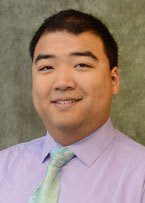[et_pb_section bb_built="1" admin_label="section"][et_pb_row admin_label="row" background_position="top_left" background_repeat="repeat" background_size="initial"][et_pb_column type="4_4"][et_pb_text background_position="top_left" background_repeat="repeat" background_size="initial" _builder_version="3.0.75" background_layout="light" border_style="solid"]
Chances are that you or someone else you know is taking some sort of prescription medication. But did you know that those medications may not be even working, or doing more harm than good? “The top ten highest-grossing drugs in the United States help between 1 in 25 and 1 in 4 of the people who take them” meaning that millions of people are taking medications that aren’t helping them. [1]
Traditional methodologies in diagnosing and treating patients can be described as being “one size fits all”. Currently, medicine and health care is centered around the “standards of care”. These “standards of care” have traditionally been “the best courses of prevention or treatment for the general population, or the average person on the street.” For example- treating osteoarthritis of the knee. Let’s say an individual is maybe experiencing pain, popping, and cracking in her knee. She then goes to her specialist where they would confirm the diagnosis. The doctor then lays out a general treatment plan that is used for all patients with OA of the knee. The patient will then start the plan and go under treatment after treatment until she finally responds. However, when and how well the patient will respond is all in question. Thus, a patient can waste a lot of time and money by attempting to fix a problem because of traditional “generalized” treatments. [2]
This is where personalized medicine comes in.
What is personalized medicine?
Personalized medicine is a fast-growing field “that is informed by each person's unique clinical, genetic, genomic, and environmental information.” By determining these factors––which vary from person to person––medical personnel may then be able to tell an individual if there are any diseases or high receptibility rate within their biological makeup, and the likelihood and timing of actually developing said diseases. “By combining this information with an individual's medical records and circumstances, personalized medicine allows doctors and patients to develop targeted treatment and prevention plans.” [3,4]
Personalized medicine not only identifies potential conditions within an individual, but can also aid in “how they might respond to drugs or other interventions” since diseases technically are “as individual as the people who have them. Personalized medicine is about making the treatment as individualized as the patient”.
Thus, whether a patient will have a positive or negative reaction to specific treatments and prevention plans can be potentially discerned from these tests, in which a Personalized Medicine plan can then be implemented and catered to the individual’s needs.
According to U.S. News and Duke Medicine, Benefits of Personalized Medicine include…
-Ability to make more informed medical decisions
-Higher probability of desired outcomes thanks to better-targeted therapies
-Reduced probability of negative side effects
-Focus on prevention and prediction of disease rather than reaction to it
-Earlier disease intervention than has been possible in the past
-Reduced healthcare costs [5]
Personalized Medicine with Regeneris Medical
At Regeneris Medical, we take the time to sit with our patients to get the most accurate diagnosis. Before starting any sort of treatment plan, we will make sure that we create an individualized procedure that we think is best for your prognosis. Not only do we take a personalized medicine approach, but we also seek more natural alternatives so that there are no risks. Regeneris does this by using your very own body as a source of medicine.
Repair Yourself with Regeneris
Regeneris Medical utilizes two different autologous regenerative sources.
1.Platelet-rich-plasma (PRP), which is obtained through a simple blood-draw. PRP contains proteins called growth-factors that help heal injuries. We concentrate PRP by placing it into a centrifuge, in which the platelets are separated from the other blood cells.
2.Adipose-Derived Mesenchymal Stem Cells- stem cells that are obtained through fat. Although there are several sources of stem cells, this is one of the safest, minimally invasive, least painful, ethically sound methods for obtaining MSCs. In fact, “this category of cell can be found in adipose (fat) tissue at nearly 2000 times the frequency of bone marrow,” meaning that adipose is one of the richest sources of stem cells. [6] At Regeneris Medical, we use the patient’s very own adult adipose (fat) cells by way of a mini-liposuction in which we attain only 50 mL of fat- all under local anesthesia, after which we then exploit the healing abilities of the MSCs within the fat.
Our procedures can be utilized for a non-exhaustive list of conditions, meaning that it is possible that we can heal a major number of diseases and disorders just by taking advantage of the body’s own healing abilities.
With these protocols, we can introduce these healing properties back into the affected areas of the body, all depending on what the diagnosis is. Regeneris can customize and combine methodologies so that you don’t have to spend another moment suffering.
Contact Us Today
Take control of your health today- call us at 1 (855) 734-3678 or use our contact form by clicking here.
Sources
[1] http://www.nature.com/news/personalized-medicine-time-for-one-person-trials-1.17411
[2] http://genomemag.com/what-is-personalized-medicine/#.WItuvbYrKgQ
[3] http://www.futuremedicine.com/doi/full/10.2217/pme-2016-0064
[4,5] http://health.usnews.com/health-conditions/cancer/personalized-medicine/overview
[6] https://okyanos.com/stem-cell-therapy-myths/
[/et_pb_text][/et_pb_column][/et_pb_row][/et_pb_section]

